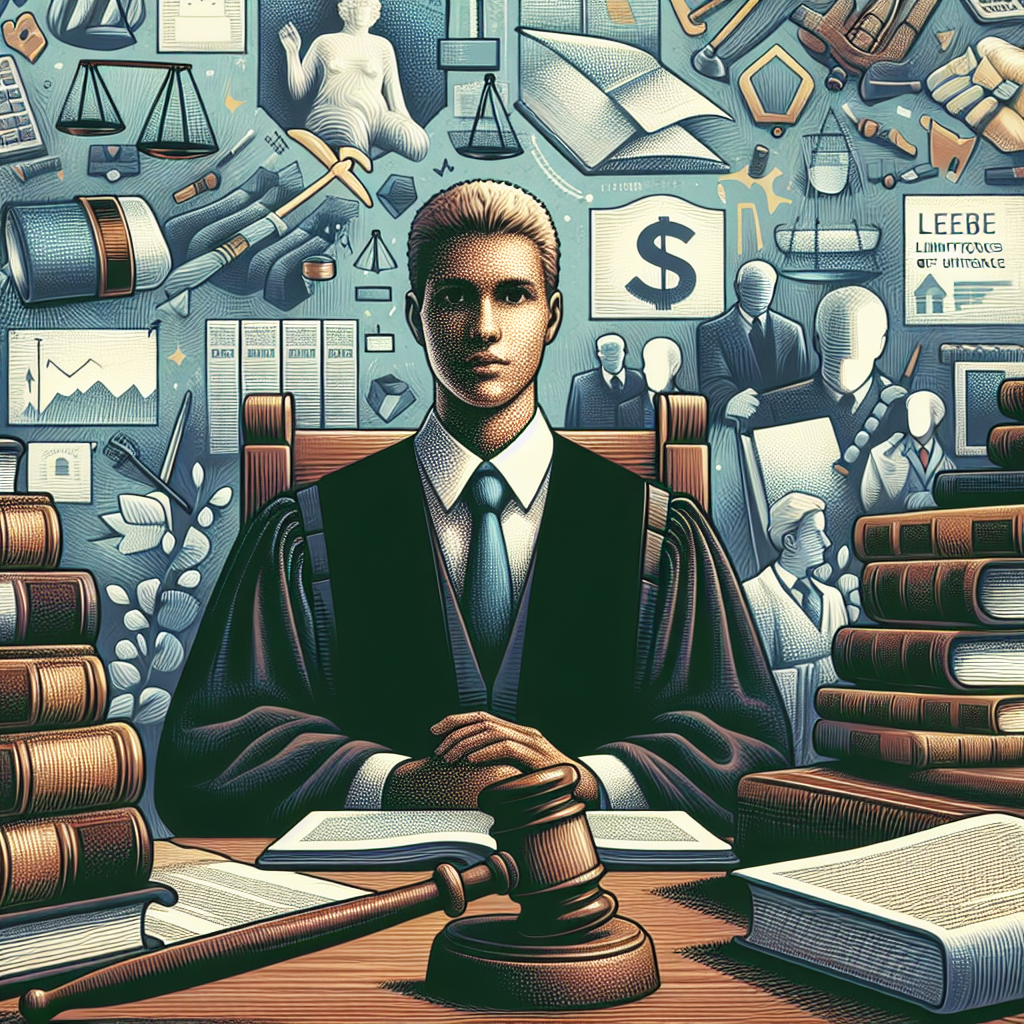The role of justices in the American judicial system has evolved significantly, particularly concerning their influence on policy-making. Despite their legal expertise, there is a growing concern about the adequacy of their understanding of complex policy issues. This disconnect raises important questions about the appropriateness of their involvement in shaping policy, given their primary function is to interpret the law rather than to create it.
The Historical Context of Lawyers in Governance
Historically, lawyers have played a prominent role in the formation of American governance. At the Constitutional Convention in 1787, nearly two-thirds of the delegates were trained in the law, indicating that legal professionals have long been integral to the policymaking process. Furthermore, over half of U.S. presidents have had legal training, which underscores the influence of legal education on leadership roles. Today, this trend continues, with approximately half of current U.S. Senators being practicing attorneys.
Beyond the legislative chambers, lawyers dominate various influential positions within the government, including congressional committee staff and executive-branch legal offices. These roles often blur the lines between legal advice and policy formulation. When legal principles are invoked in public discourse, non-lawyers frequently defer to the authority of those with legal credentials, further amplifying the perceived importance of lawyers in shaping public policy.
The Evolving Role of the Judiciary
Despite the significant role lawyers play in governance, the judiciary’s influence on policy is particularly noteworthy. Justices and judges, especially those on the Supreme Court, have increasingly stepped into the realm of policymaking. This shift raises concerns about their qualifications to engage in such complex matters, as many justices may lack the requisite knowledge of policy intricacies. The fact that these individuals, alongside their clerks and academic advisors, are shaping policy decisions without extensive backgrounds in governance is troubling.
The rising power of the courts can be attributed to several factors, including a weakened Congress, which struggles with its own internal challenges, and an executive branch that often takes bold actions leading to judicial interventions. This situation creates a dynamic where judges feel compelled to step into the gaps left by other branches of government. However, the critical question remains whether the judiciary is truly equipped to handle the responsibilities that come with this increased influence.
Understanding the Implications
The implications of judicial involvement in policy-making are far-reaching. As courts take on more significant roles in areas traditionally managed by legislatures, the balance of power within the government may be disrupted. This shift can lead to a lack of accountability, as justices are not elected officials and do not face the same scrutiny as legislators. The multidistrict litigation challenges illustrate how judicial decisions can have profound effects on public policy, often without the checks and balances present in other branches of government.

Moreover, as the judiciary increasingly influences policy, it raises questions about the legitimacy of their decisions. If justices are not well-versed in the nuances of policy-making, their rulings may not adequately reflect the needs and values of the populace. This disconnect could lead to a growing sense of disenfranchisement among citizens who feel that their voices are not being heard in the judicial process.
| Aspect | Judicial Role | Policy Impact |
|---|---|---|
| Historical Influence | Lawyers in Governance | Significant |
| Current Trends | Judicial Activism | Growing |
| Public Perception | Legal Authority | Questionable |
As the judiciary continues to assert its influence over policy, it becomes increasingly important to scrutinize the qualifications and motivations of those making these decisions. The role of justices should be carefully balanced with the need for informed policy-making, ensuring that the judiciary does not overstep its bounds. Furthermore, the introduction of technology, such as AI in courtrooms, adds another layer of complexity to this issue, necessitating a more nuanced understanding of both legal and policy implications.
The role of justices within the judicial branch often extends beyond the mere application of law; it increasingly influences public policy. This phenomenon raises critical questions about the qualifications of judges and justices in shaping policy decisions. As the judiciary’s power grows, it is essential to scrutinize whether those who wield such influence are equipped with the necessary expertise in policy matters.
Judicial Influence on Policy
The Supreme Court and lower courts have become pivotal players in American governance, particularly as legislative bodies face challenges in addressing pressing issues. The increasing reliance on judicial rulings for policy decisions can be attributed to a variety of factors, including legislative gridlock and the perceived inadequacies of existing laws. As a result, many legal experts and scholars argue that the judiciary is stepping into roles traditionally held by elected officials. This shift is concerning, especially when considering that many justices lack formal training in public policy.
For instance, the administrative law insights reveal that judges often make decisions that impact healthcare, education, and civil rights without a comprehensive understanding of the policies involved. The complexities of these areas require nuanced knowledge that extends beyond legal principles. Justices, while skilled in interpreting law, may not possess the requisite background to navigate the intricacies of policy implications effectively.

Challenges of Judicial Expertise
Another significant issue arises from the disconnect between judicial reasoning and the realities of policy-making. Many justices approach cases from a strictly legalistic viewpoint, often neglecting the broader societal implications of their decisions. This often leads to rulings that, while legally sound, may not address the underlying policy issues effectively. As the legal landscape evolves, it becomes clear that a deeper understanding of policy is crucial for justices who are increasingly at the helm of significant societal changes.
The intersection of law and policy is further complicated by the fact that many judges are not directly accountable to the electorate. Unlike legislators, who must respond to their constituents, justices often operate in a vacuum, insulated from public opinion. This lack of accountability can result in decisions that do not reflect the values or needs of the communities they serve. As highlighted in discussions surrounding the impact of employment laws, the judiciary’s role in shaping policy can lead to outcomes that diverge from public expectations.
The Need for Policy Expertise
Given the complexities of modern governance, it is imperative that those in the judiciary develop a more profound understanding of policy-making processes. This could involve collaboration with policy experts, engaging in interdisciplinary training, or establishing advisory panels that include stakeholders from various sectors. By bridging the gap between law and policy, the judiciary can enhance its decision-making capabilities, ensuring that rulings are informed by a comprehensive understanding of the issues at hand.
Moreover, as the judiciary continues to assert its influence over crucial policy areas, there is a pressing need for transparency and public engagement. Justices should consider the implications of their decisions on the broader societal fabric, particularly in areas where their rulings have far-reaching consequences. For example, the legal risks of social media usage are a testament to how judicial interpretations can shape public discourse and individual rights. As the role of the judiciary expands, so too must its commitment to understanding and integrating policy expertise into its framework.
The role of justices in the American legal system has been a topic of considerable debate, particularly when it comes to their influence on policy. While justices are often viewed as the final arbiters of legal disputes, their understanding and expertise in the realm of policymaking can be questionable. This disparity raises critical concerns about the implications of judicial decisions on public policy, especially given the increasing tendency for courts to shape legislation and governance directly.
The Judicial Influence on Policy
Over the years, the judiciary has expanded its reach into areas traditionally reserved for legislative bodies. This phenomenon has been exacerbated by a Congress that often struggles to reach consensus, leading to a vacuum that the courts are eager to fill. As justices and judges issue rulings on contentious issues such as healthcare, education, and civil rights, their decisions can have far-reaching implications that extend beyond the courtroom. The question arises: do these legal experts possess the necessary expertise to navigate the complexities of policy formulation?

While justices are trained in the law and are adept at interpreting statutes and legal precedents, their lack of direct experience in policymaking can lead to unintended consequences. For instance, when the Supreme Court addresses issues like tort reform laws, the implications of their rulings can affect countless individuals and businesses, often in ways that the justices may not fully comprehend. This disconnect can result in policies that are not only impractical but also misaligned with the needs and realities of the populace.
The Risks of Judicial Overreach
Judicial overreach occurs when courts take it upon themselves to decide issues that should be addressed through democratic processes. This trend raises ethical and practical concerns. For one, it undermines the principle of separation of powers, as the judiciary encroaches on the legislative branch’s responsibilities. Furthermore, it can lead to a lack of accountability, as justices are not elected officials and do not have to answer to the public in the same way that legislators do.
Moreover, the growing influence of the judiciary can create a perception that the courts are out of touch with the realities faced by ordinary citizens. When justices make decisions based on legal principles without a thorough understanding of the policy implications, it can lead to outcomes that do not reflect the values or needs of society. This disconnection can foster public distrust in the judicial system, as citizens may feel that their voices are not being heard in the policymaking process.
Conclusion: The Need for Expertise in Policymaking
As the role of courts in American governance continues to evolve, it is essential to recognize the limitations of judicial expertise in policymaking. Justices, while knowledgeable in the law, may not possess the practical insights necessary to craft effective public policy. This reality calls for a reevaluation of the judiciary’s role in shaping policy and highlights the importance of involving a diverse range of voices in the legislative process. Ultimately, a balance must be struck between legal interpretation and informed policymaking to ensure that the laws and policies enacted truly reflect the needs of the people they serve.